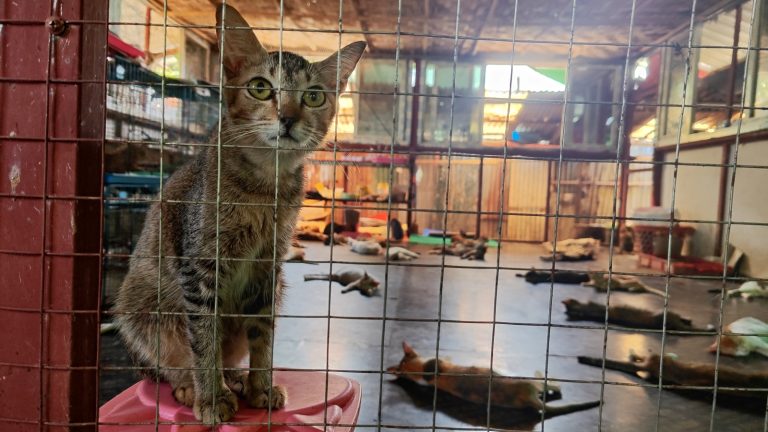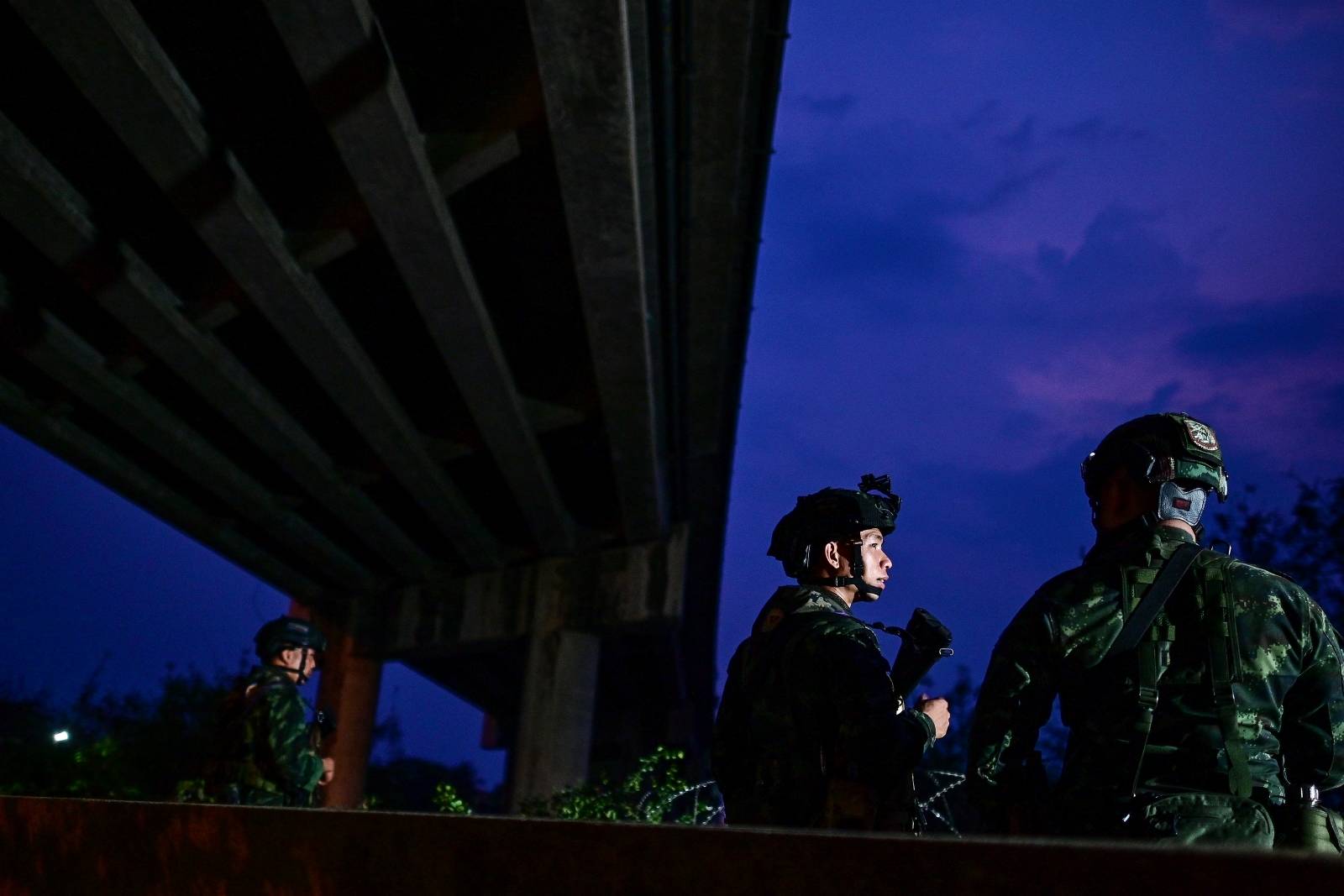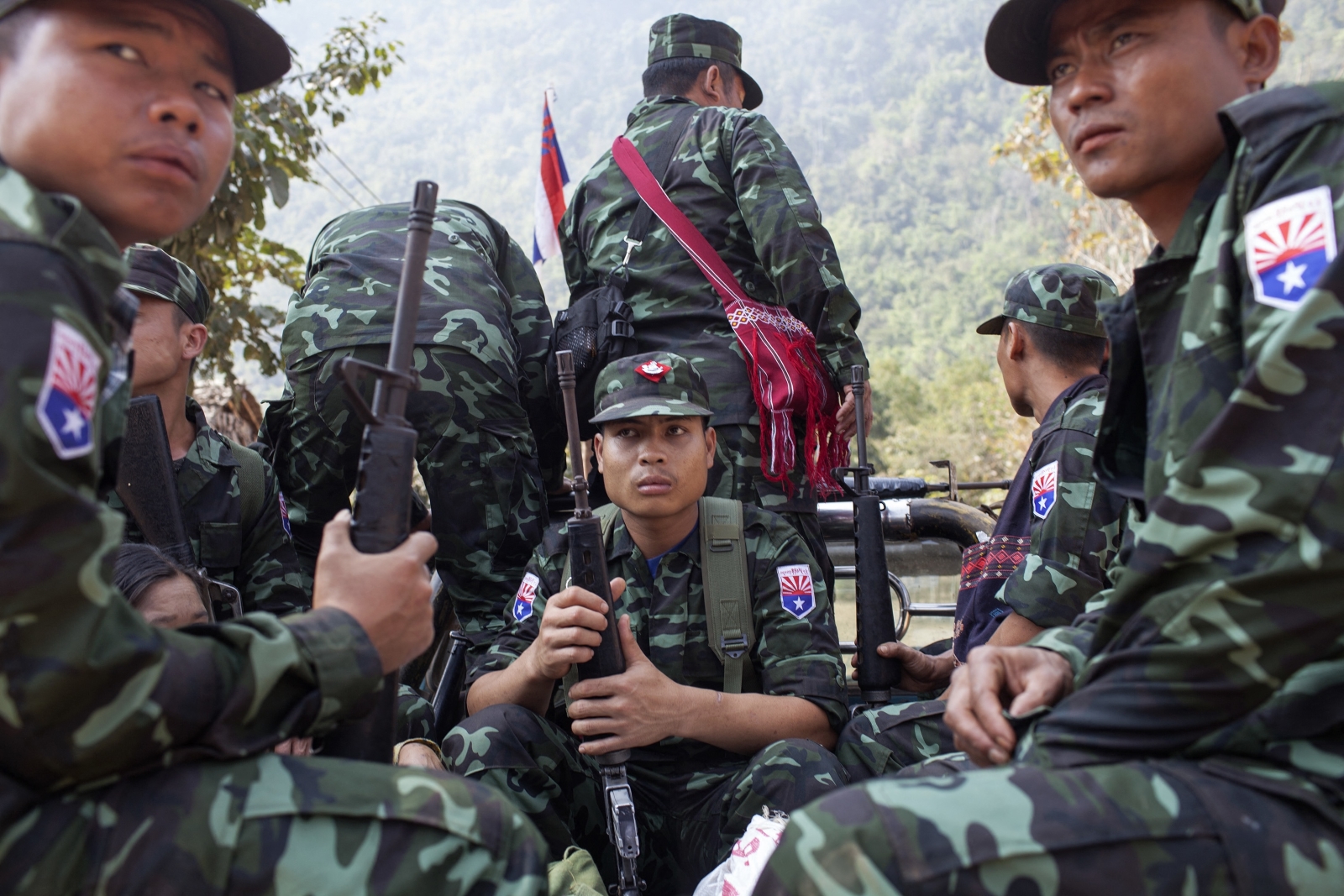By AFP
Standing beside his cargo of Thai fruit and furniture, truck driver Ko Cho steels himself for a journey to Myanmar’s Yangon that will demand bribes, dodging landslides and navigating a raging civil war.
The commercial hub is just 400 kilometres (250 miles) away, but a round trip from Myawaddy on the Thai border can take more than 10 days of slogging through checkpoints and paying backhanders to the military and its allies.
The main route linking Myanmar with its second biggest trading partner is part of the United Nations-backed Asia Highway project to create a road network from Tokyo to Istanbul.
But this section of AH1 runs through Kayin State, home to a decades-old conflict between ethnic armed groups and the military that has escalated since the generals’ coup in February 2021.
Air strikes and artillery barrages regularly fall near the road, further choking a major artery of an economy on life support since the putsch.
“When we hear the gunfire is very close, we immediately stop and hide under the truck,” said 43-year-old driver Ko Zaw, a pseudonym.
Ko Cho, also a pseudonym, was waiting at a gas station when Associated France-Presse spoke to him in September, travelling in a group of five trucks for safety.
“We have to stop and wait on the road when there is a battle,” he said. “It’s happened twice this month.”
Drivers always have ID cards, licences, cash and phones at the ready in case something happens, Aung Htoo, a truck owner who works the road, told AFP.
“Because we can’t turn the truck back, we have to leave and run away.”
‘Pay everyone everywhere’
Even getting onto the highway is a task.
In the border town of Myawaddy, truck owners pay a fee of K120,000 (US$65) just to “quickly” enter the loading zone where their cargoes are inspected, Aung Htoo said.
“It can take one month to enter the zone if we don’t pay,” he said. “All cars pay.”
Myawaddy, a drug and human trafficking hub largely controlled by a junta-allied militia, has been caught up in the junta’s raging conflict with its opponents.
In September, anti-junta fighters used drones to drop bombs on a government compound, killing five officials and wounding 11 policemen.
Once a truck is safely out on the road, “checkpoints” run by the military or its militia allies demand fees of roughly K150,000 per truck per journey to Yangon, Aung Htoo said.
From Myawaddy, the road winds up towards monsoon-soaked hills that periodically shed rocks and earth onto the tarmac, burying parts of the route for days.
Passenger buses crawl up inclines or hiss and lurch around washed-out corners, English-language lettering on their sides announcing “Man of the Year” or “Shopaholic”.
At one corner, an 18-wheeler truck lies tipped over, its crew waiting while a recovery vehicle works.
Every two hours or so there is a checkpoint, Ko Zaw said.
“We have to pay everyone everywhere – on the road, on the bridges, at toll gates, at the trade zones.”
If they try to negotiate the price, he said, the drivers are told “go back if you don’t have money”.
‘Worried for our lives’
Descending from the hills the road enters the town of Kawkareik – last year the target of a major assault by Karen National Union ethnic fighters that was only beaten back when the junta called in multiple air strikes.
Pickup trucks carrying heavily-armed troops swerve between the lumbering lorries while camouflaged fighters patrol on foot, barely visible against the jungle.
Hours later, across the plains at Nyaung Kar Shay, dozens of trucks line up for inspection at one of the last major checkpoints before Yangon.
A wait of at least half a day is normal there, Ko Cho said — unless a further bribe of around K100,000 is paid.
In Yangon, the goods are unloaded at warehouses before the drivers turn their trucks back towards Myawaddy.
All for a wage of around $100 plus food expenses per trip.
“The truck owners worry about drivers, the spare man, the truck and also about the goods we are carrying,” Ko Zaw said.
“We drivers are also worried for our lives.”







